“The last three superintendents we’ve had here, including you, have not brought anything but mayhem to the school system,” declared Buncombe Commissioner Al Whitesides to Asheville City Schools Superintendent Gene Freeman.
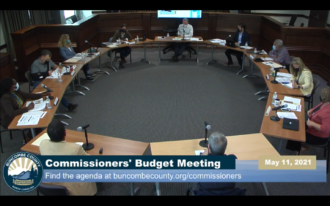

“The last three superintendents we’ve had here, including you, have not brought anything but mayhem to the school system,” declared Buncombe Commissioner Al Whitesides to Asheville City Schools Superintendent Gene Freeman.

Under current projections, even if the system taps into the entirety of its available reserves to cover expenses for fiscal year 2021-22, it would still face $865,000 in cuts to balance its budget. And if expenses and revenue trends continue on the same path, the necessary cuts for fiscal year 2022-23 could exceed $2 million.
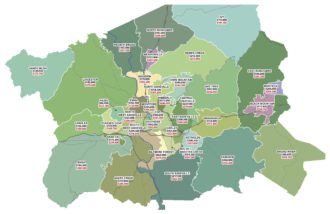
For the median home in Buncombe County — worth $231,400 before revaluation and $291,000 now — the new rate would boost taxes by over 16%, from $1,224 to $1,423 per year. The percentage increase is greater than the roughly 14% rise commissioners approved in 2017.
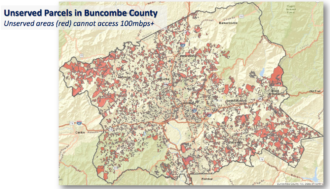
The two rural areas in the county’s northwest and southeast emerged as the biggest pockets of need after an extensive analysis by county staff of high-speed internet availability. A contract with an internet provider to expand service could go before the Board of Commissioners in July.

County leaders say establishing the holiday, which commemorates the 1865 announcement of the Emancipation Proclamation by Union soldiers to enslaved people in Texas, is supported by the county’s Equity and Inclusion Workgroup and would “represent an authentic and more inclusive history of freedom in America.”
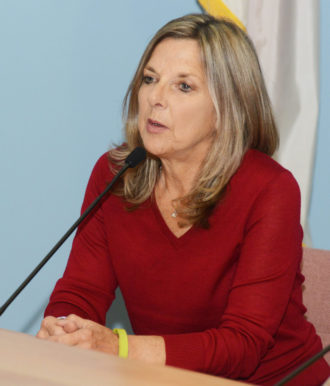
In July 2019, former Buncombe County Commissioner Ellen Frost was charged with 11 federal crimes related to her misappropriation of roughly $575,000 in county funds in 2015 and 2016. Without obtaining board approval, Frost partnered with former County Manager Wanda Greene to spend taxpayer money on sponsorships of three equestrian enterprises in the name of the Asheville Regional Airport.
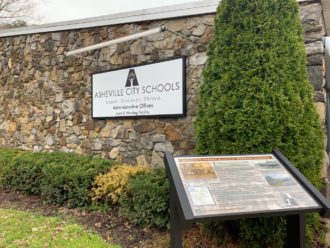
At its first meeting since the March 23 appointments of James Carter, Jacquelyn Carr McHargue and Peyton O’Conner by Asheville City Council, the Asheville City Board of Education’s members chose Carter as chair and McHargue as vice chair in a pair of split decisions.

At its March 25 regular meeting, the Buncombe County Tourism Development Authority board unanimously approved a projection that occupancy tax revenue would exceed $27 million for fiscal year 2021-22 — 15% more than projected for the current fiscal year, which ends in June, and 9% more than the year before the pandemic.

“The path we’re on right now is a collision that puts us backwards and actually takes classrooms offline,” said Buncombe County Commissioner Jasmine Beach-Ferrara, regarding the Asheville City Schools plan to relocate preschool classrooms from Asheville Primary School to other elementary schools and Asheville Housing Authority developments.

The funds, equal to roughly a quarter of budgeted property tax revenue for the current fiscal year and more than its budgeted spending on general government administration, represent by far the largest pot of federal support yet provided to the county during the pandemic.

“Families of color have unfairly limited elementary school options for their children because the district is mandated to maintain antiquated racial quotas that were put into place 30 years ago,” writes Asheville City Schools Superintendent Gene Freeman.

Buncombe County would become the first local government in Western North Carolina to pass a nondiscrimination ordinance. Orange County and several municipalities have approved similar language after a statewide ban on such ordinances expired Dec. 1.

The charging station program, funded by the N.C. Department of Environmental Quality from part of the state’s allocation in the Volkswagen emissions-cheating scandal, partially defrays the cost of installing Level 2 infrastructure, which can recharge electric vehicles up to seven times as quickly as a standard 120-volt outlet.
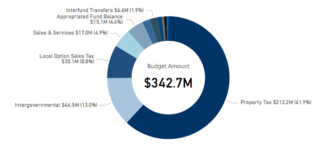
“We would end up basically having to raise taxes on everyone else to fund these rebates to businesses that we understand have had a tough year, but many of which have had a great decade ahead of this year,” said Board of Commissioners Chair Brownie Newman.

At its meeting of Tuesday, March 2, the Buncombe County Board of Commissioners will consider a contract with Asheville-based Equinox Environmental Consultation and Design to develop possibilities for the county-owned property, which has previously been considered for an outpost of Oregon-based Deschutes Brewery and a 416-unit subdivision.

The first such effort of its kind in North Carolina, the atlas will break the state into 937 sections of 10 square miles — covering roughly a fifth of its total land area — and ask birders to record all the varieties they see using the online platform eBird.
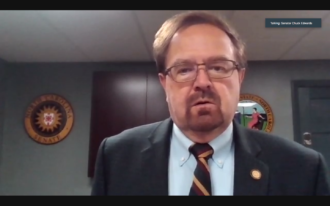
“This is not the time to talk about redistribution in any manner,” Republican Sen. Edwards told the Council of Independent Business owners regarding changes to the allocation of Buncombe County’s occupancy tax revenue. “The tourism industry has just been destroyed.”
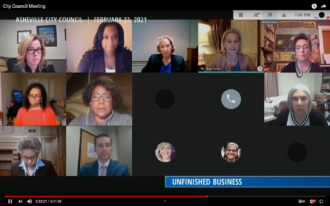
“I’m really struggling with this process as a parent, as a councilor,” said Asheville City Council member Sage Turner, as her colleagues considered how they would appoint three members of the Asheville City Board of Education. “I’m really struggling with us not listening to teachers.”

Victoria “Vic” Isley, the new president and CEO of the Explore Asheville Convention and Visitors Bureau, says new paid advertising for Asheville, an expansion of the Buncombe County Tourism Development Authority board to include short-term rental owners and changes to occupancy tax allocation are all on the table in 2021.

The Buncombe County Board of Commissioners directed health staff to set aside 975 vaccine doses per week — half of the weekly 1,950 doses that North Carolina has been sending the county — for school employees starting Wednesday, Feb. 24.

Signed by Asheville City Schools Superintendent Gene Freeman on Feb. 5, the agreement with Raleigh-based Forthright Advising drew the concern of Asheville City Board of Education member Joyce Brown during a Feb. 15 meeting of the board.